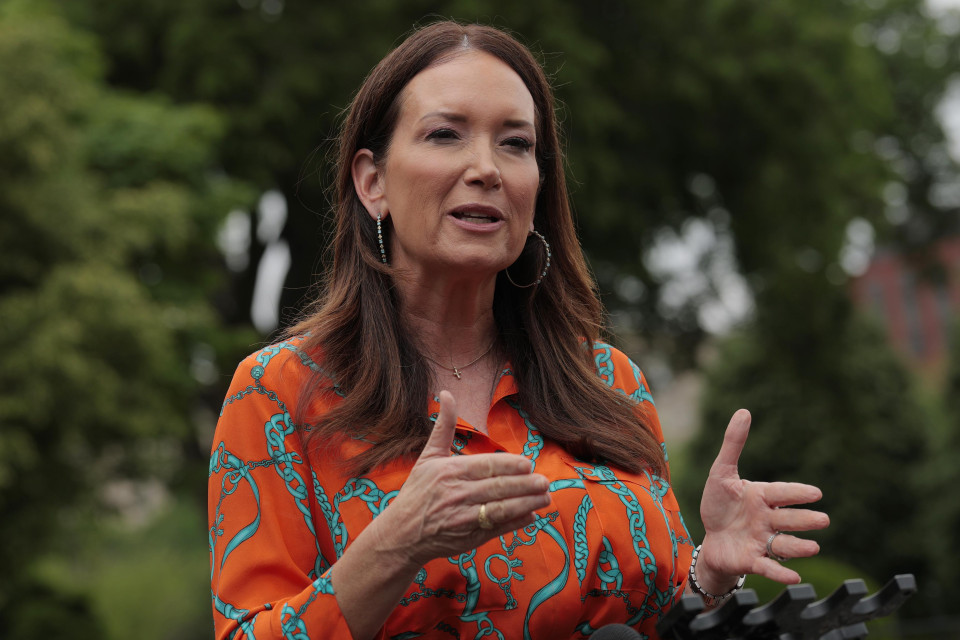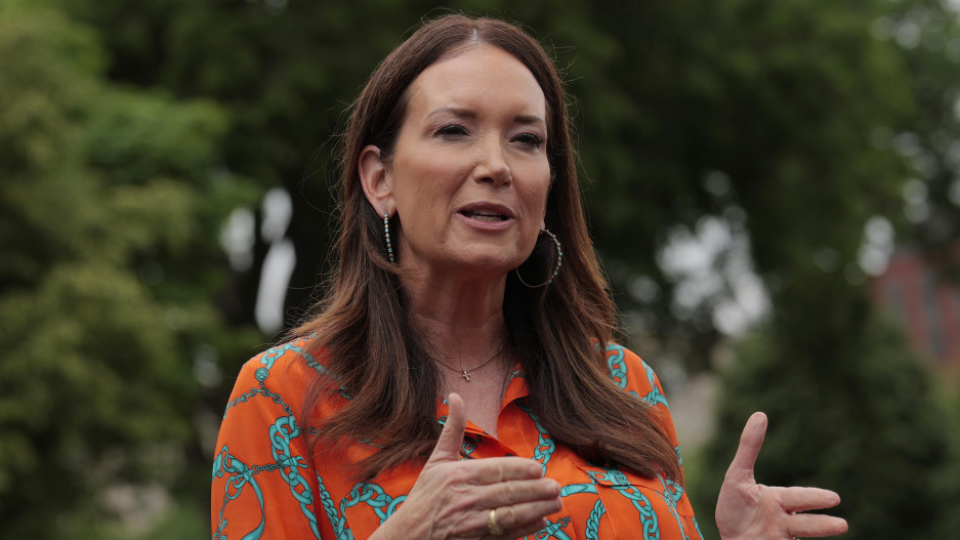U.S. Agriculture Secretary Brooke Rollins said Monday she will visit India, Japan and Vietnam along with other countries in the coming weeks as part of tariff negotiations.
Rollins suggested to reporters at the White House that she will push those major U.S. trading partners to increase imports of American farm products and help rectify trade imbalances.
“Deals are being negotiated right now,” Rollins said, “Next week, I’ll be in England discussing these things. A few weeks after, I’ll be in Italy, then soon after that, Vietnam, Japan and India.”
“I’m reflective of a larger Cabinet effort on behalf of this president to get out into the world to expand the markets,” she said, referring to Donald Trump, who has unleashed a series of hefty tariffs on foreign goods since taking office in January for a nonconsecutive second term.

U.S. Secretary of Agriculture Brooke Rollins speaks with reporters outside the White House on May 5, 2025, in Washington. (Getty/Kyodo)
Her remarks came after Japan and the United States held their second round of tariff negotiations at the ministerial level in Washington last week.
Japan’s chief tariff negotiator Ryosei Akazawa agreed with Treasury Secretary Scott Bessent and other U.S. Cabinet members to hold intensive ministerial discussions from mid-May onward, with the aim of a “mutually beneficial deal” as early as June.
But sources with knowledge of the ongoing talks later said the two countries are far from narrowing differences over Trump’s tariffs, including new 25 percent levies on car and auto parts imports.
Without providing details, Trump told reporters on Monday he plans to announce tariffs aimed at reviving the U.S. pharmaceutical sector within the next two weeks.
For Japan, removing the auto tariffs is particularly important, with officials in Tokyo saying they have no intention of reaching a deal with the Trump administration unless all its additional protectionist measures are reviewed.
Still, according to the sources, the Trump administration has refused to grant Japan a full exemption from the new tariffs, saying only the country-specific part of the so-called reciprocal duties will be negotiable.
Like almost all countries, Japan now faces a baseline tariff of 10 percent and sector-based duties such as those targeting the auto and steel industries.
The country-specific portion, which Trump put on hold until early July under a 90-day pause, differs for each U.S. trading partner. In the case of Japan, the additional rate is 14 percent.
On Monday, Rollins said the administration was “realigning an entire world economy around American products,” and that the benefits to U.S. farmers and ranchers would outweigh impacts to “any other American producer and whatever they’re producing.”
Related coverage:
U.S. rejects Japan’s exemption from “reciprocal” tariffs
Japan wants all tariffs reviewed to reach deal with U.S.: negotiator
Trump’s 25% auto part tariff takes effect, in latest blow to Japan


AloJapan.com